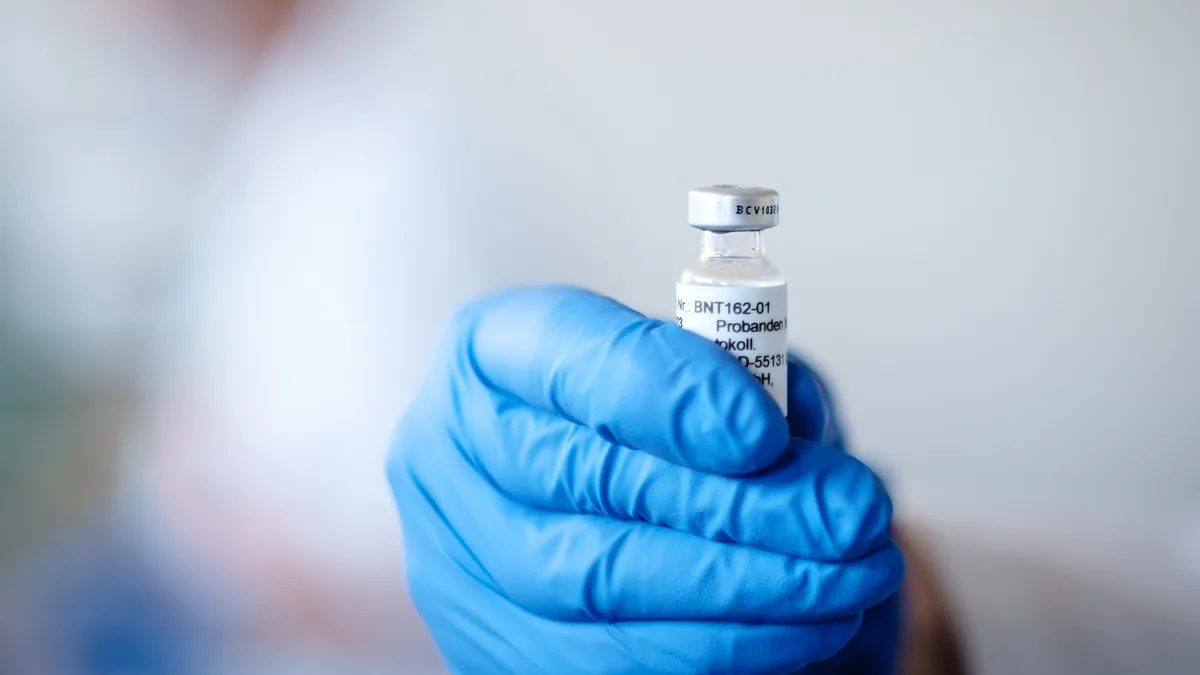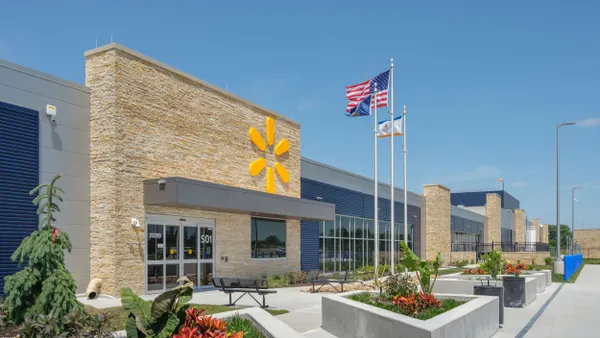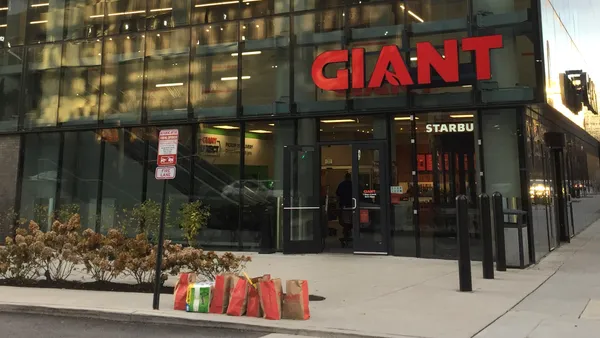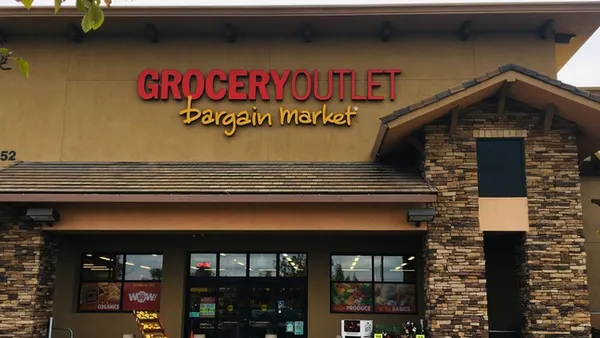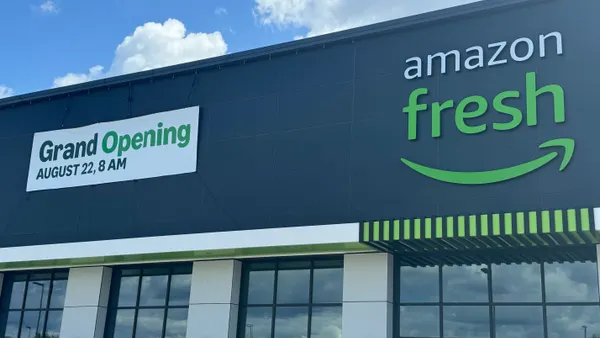Dive Brief:
- The Food Industry Association (FMI) said food essential workers are struggling to access vaccinations against COVID-19 and has urged the Centers for Disease Control and Prevention’s advisory committee to “strongly” encourage states to follow the federally recommended vaccination schedule, which places these workers in Phase 1b.
- The trade group is also calling on the Biden administration to appoint a federal vaccine coordinator in each state to facilitate distribution across priority populations, and to provide lot release dates for vaccine doses to states and providers ahead of time.
- The call from FMI follows a slow initial rollout of vaccines across the U.S. and differing vaccination schedules from states. Peter Matz, FMI’s director of food and health policy, said grocery pharmacies are also getting just a fraction of the vaccine doses they’re capable of administering.
Dive Insight:
Although the CDC’s advisory panel recommended grocery and other “frontline” food industry workers get vaccinated in the second sub phase after healthcare personnel and assisted living residents, numerous states have chosen not to follow this guidance while others have not yet specified when these individuals might get inoculated.
Some states, like Virginia, have scheduled frontline essential workers across multiple subgroups, while others, like Kentucky, have classified these workers in the third round of vaccinations. Several states, including Texas and Minnesota, have only scheduled their earliest rounds of vaccinations, which include healthcare personnel and individuals in assisted living facilities, and are currently considering how to classify other groups.
The result of inconsistent classifications coupled with a halting rollout of vaccines to date is a wide-ranging timeline for when U.S. grocery workers will get vaccinated. New York and Maryland, for example, have already entered the distribution phase that includes grocery workers, while Michigan’s health department estimated earlier this month that these individuals won’t be able to get vaccinated until May.
Tennessee classifies grocery workers in Phase 3 of its vaccine distribution plan, which isn’t set to begin until Q3. In California, which has not yet formally classified grocery workers in its vaccination plans, some communities have already given shots to local store workers and other frontline employees.
Meanwhile, food retailers are struggling to vaccinate local communities after expressing a willingness for their pharmacies to play a key role in administering shots. In his appeal to the CDC’s advisory committee, Matz said many supermarkets have set up outdoor vaccination clinics and have capacity to administer up to 1,000 vaccines per day, but that “most are not yet receiving vaccine supplies anywhere close to their capacity.”
A federal vaccine coordinator in each state would improve distribution, Matz noted, while receiving further information about forthcoming vaccines would allow providers to better prepare to administer shots.
The Biden administration said this week it plans to increase the minimum weekly vaccine shipment from 8.6 million doses to 10 million, and has guaranteed this number over the next three weeks. The federal government has also purchased 200 million additional doses of the Pfizer-BioNTech and Moderna vaccines, providing a 50% boost in vaccine orders that it estimates will help fully vaccinate 300 million Americans by the end of the summer.



